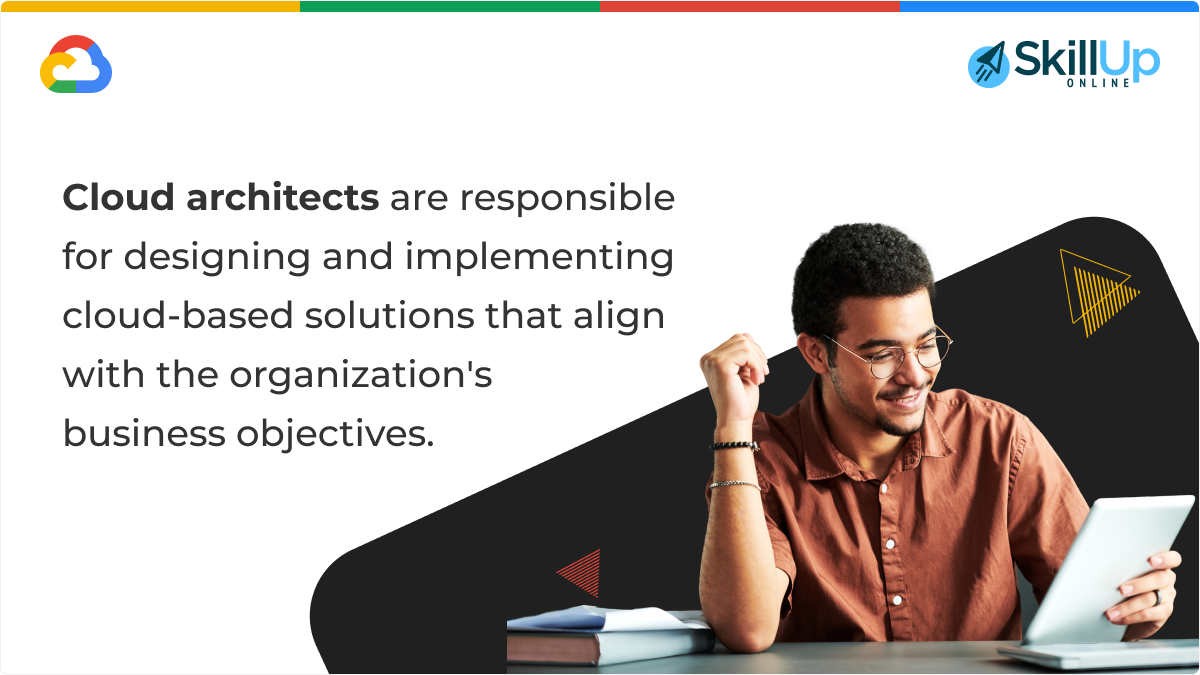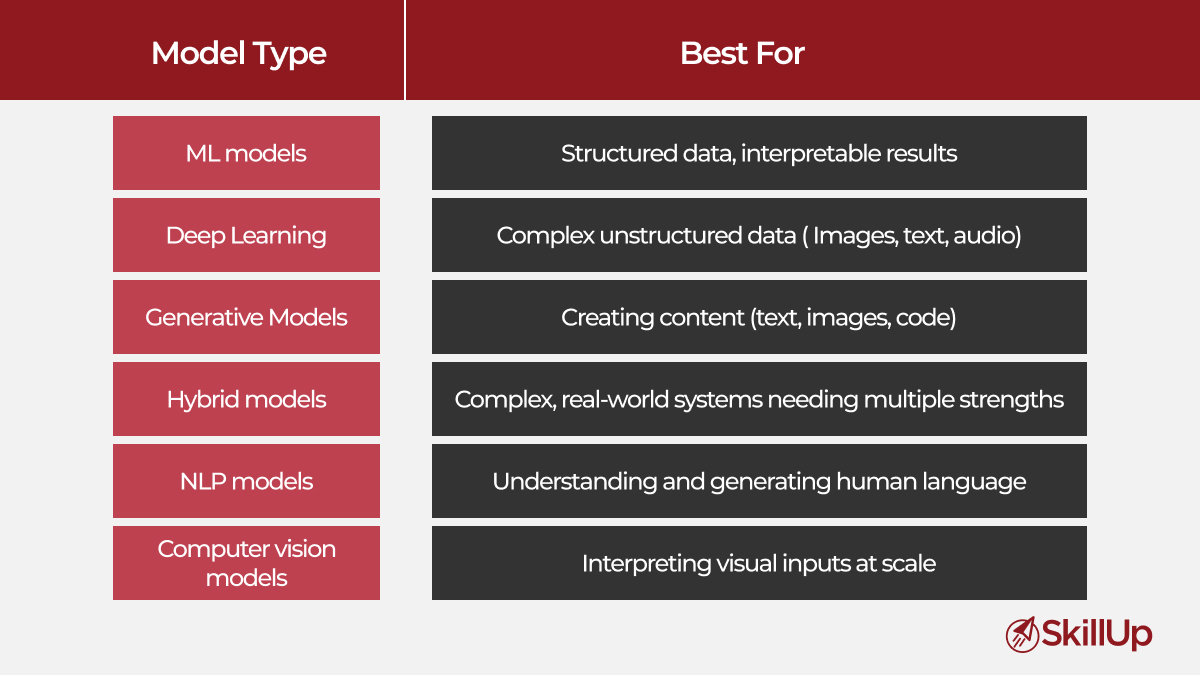Have you been feeling stuck in your cloud career and unsure of how to move forward? Now could be the right time to take a leap. With the cloud landscape constantly changing, there’s an ever-increasing demand for the latest cloud skills, and the next cloud role for you could be in cloud architecture.
You might think that a college degree is the only way to progress in this field, but that’s not entirely true. While a science degree is certainly beneficial, many employers are looking for candidates with up-to-date practical skills that degrees haven’t taught. So, there’s no reason why cloud architecture can’t be the next step for you, regardless of your previous education.
Let’s look at what a cloud architect does.
What is the role of a cloud architect?
As a cloud architect, you play a critical role in cloud development projects or in an organization’s cloud computing strategy. You are responsible for designing and implementing cloud-based solutions that align with an organization’s or project’s business objectives. This involves evaluating different cloud vendors and their services, managing cloud infrastructure, and ensuring compliance with industry and regulatory standards.
Cloud architects work closely with other teams, such as development, operations, security, and compliance, to ensure that cloud-based solutions are integrated with an organization’s overall IT infrastructure. And their role is crucial in enabling organizations to leverage the benefits of cloud computing and achieve their business goals.
With that said, let’s now look at the skills that you need to get rolling.
What are the skills required to become a cloud architect?
To become a cloud architect, you need a combination of specific technical and soft skills. You should have a deep understanding of various cloud platforms, such as AWS, Azure, and Google Cloud Platform, and be able to design and deploy solutions on these platforms. Plus, you also need expertise in infrastructure, such as code tools and methodologies, networking concepts, security, and compliance with industry and regulatory standards.
In addition to this, you need certain strong human skills, including good communication, leadership, and problem-solving. In fact, good human skills are essential to your success as a cloud architect because you need to work collaboratively with other teams and stakeholders and explain complex technical concepts to non-technical stakeholders. Plus, you must be committed to continuous learning and professional development to stay up-to-date with the latest cloud technologies and improve your skills.
What is the average salary of a cloud architect?
Cloud architecture is one of the highest-paying skill sets in the domain. But how much can you expect to earn? According to data from Glassdoor, the average salary for a cloud architect in India is around ₹20,00000 per year. And this figure gets better as your experience develops.
Additionally, the good news is that, as companies continue to adopt cloud-based technologies, the demand for skilled cloud architects is on the rise. According to NASSCOM, large-scale cloud adoption will contribute $380 billion to India’s GDP and will add 14 million direct and indirect employment opportunities by 2026.
Is there a need for a degree to become a cloud architect?
Now, this is a crunch question. However, it’s a common misconception that a degree is required for the role. Talented individuals who don’t have a degree but have the right skills and attitude can get jobs and succeed.
One way to get started is by learning the required skills via certifications. According to LinkedIn, 72% of employers think that boot camp graduates are just as able to perform well as candidates with computer science degrees. Plus, 12% think boot camp grads are more prepared and able to succeed than traditional job candidates.
Furthermore, due to the fast-evolving nature of cloud computing, traditional engineering or IT degrees may not always offer the precise skills that employers require at any given time. Employers are conscious of this and now often prefer candidates who are equipped with up-to-date skills and have industry-recognized certifications. And this means completing certification programs is a great way to obtain the essential skills required for becoming a cloud architect without the need to pursue a conventional IT degree.
How do I become a cloud architect with no degree?
The convenience of numerous online courses and programs makes it possible to build your knowledge in the required aspects of cloud platforms, cloud security, infrastructure, programming languages, and other related subjects. A great example is the Google Cloud Architect Program by SkillUp Online. This program gives you valuable platform-specific skills, as well as a thorough grounding in cloud concepts and methodologies.
It’s worth noting that as practical experience is highly desirable in this field, it is recommended that you seek out courses and programs that offer hands-on labs and capstone projects. This practical experience will not only strengthen your resume but also provide excellent talking points during interviews.
Additionally, another avenue to gain practical experience is to explore freelance sites such as freelancer.com. By registering on these platforms and bidding on cloud computing projects, you can expand your skillset while also adding more experience to your portfolio.
Steps to become a cloud architect
As a quick recap, by focusing on the following steps, you can pave the way to achieving your goals.
- Plan your career around developing skills and gaining experience in different cloud platforms, such as AWS, Google, or Microsoft Azure.
- Begin your learning journey by enrolling in fundamental courses that are specific to the cloud and platforms you have chosen.
- As you progress, upskill yourself by exploring relevant certification programs and exams that can add value to your resume.
- Additionally, register yourself as a freelance cloud architect on freelance sites and bid on cloud projects to gain practical experience.
- Join cloud computing network groups on LinkedIn to stay up-to-date with industry trends and connect with like-minded professionals.
- Lastly, keep your resume updated and apply for your desired job role on different platforms.
SkillUp Online







